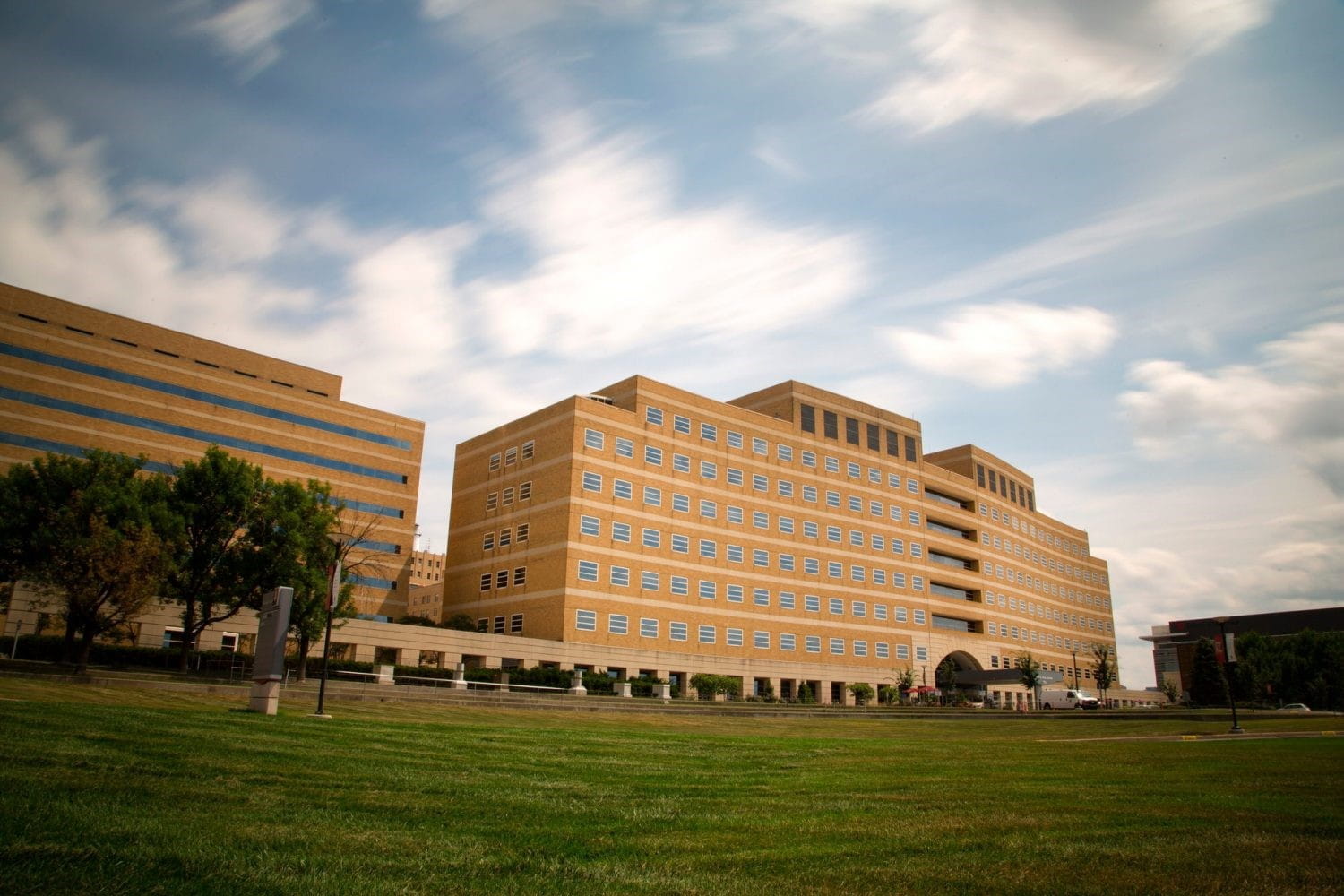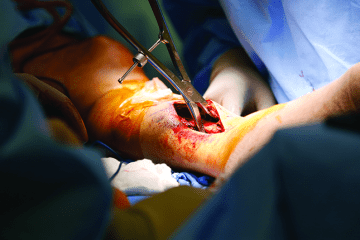Indiana University School of Medicine’s Orthopaedic Trauma Fellowship program offers a comprehensive surgical experience with a wide breadth of complex pathology. Indiana University Health Methodist Hospital serves as a tertiary referral center for complex orthopaedic trauma throughout Indiana.
The following are the average number of cases per fellow during the fellowship year based on recent fellows' case logs:
| Anatomic Location | Annual Number of Operations |
|---|---|
| Open fractures (all sites) | 80 |
| Acetabulum | 45 |
| Pelvis | 60 |
| Hip fracture | 80 |
| Femur (shaft and distal) | 69 |
| Bicondylar tibia plateau | 27 |
| Tibia shaft | 57 |
| Tibia pilon | 30 |
| Calcaneus | 14 |
| Long bone nonunion/malunion | 40 |
| Humerus shaft | 25 |
| Distal humerus | 15 |
| Elbow fracture/dislocation | 20 |
| Ring fixators | 2-10 |
.jpg?rev=274c07f512784eecbf0914df47bb07a8&la=en&h=3680&w=5520&hash=2BC66F2226B3A982412029005BEA3AB7)

